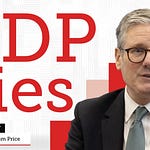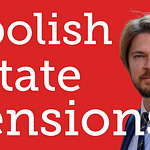In this new Land of Opportunity series, the Institute of Economic Affairs has partnered with Land of Opportunity to explore why America’s economy has dramatically outpaced Europe since 2008. The series examines the cultural, policy, and philosophical differences that have allowed the US to surge 50% ahead in GDP while Europe has stagnated. Through interviews with leading American policy thinkers, entrepreneurs, and analysts, the series investigates what Britain can learn from the American model to rebuild its own culture of enterprise and aspiration.
In this first episode, Andrew Barclay from Land of Opportunity speaks with Dr. David Rehr, Director of the Centre for Civil Business Engagement at George Mason University. The conversation examines how America’s entrepreneurial culture, rooted in its founding principles of freedom and self-reliance, continues to drive economic success through lower taxes, reduced regulation, and a philosophical approach that trusts individuals over government to allocate capital effectively. Rehr explains the fundamental differences between the American and European economic models, and why Britain—despite having world-class universities, English as the business language, and an independent judiciary—has adopted policies that punish rather than reward growth.
The discussion reveals how regulation functions as a hidden tax that disproportionately benefits large corporations while crushing small businesses and entrepreneurs. Rehr and Barclay explore why British high streets now look identical, dominated by a few major chains that can afford compliance costs, and contrast this with America’s approach where states compete to offer business-friendly environments. They discuss how Britain’s VAT threshold prevents 30,000 businesses annually from expanding, why fear of failure rates are 20% higher in the UK than comparable countries, and the cultural shift needed to treat every individual as the “CEO of their own life” regardless of their role in society.











